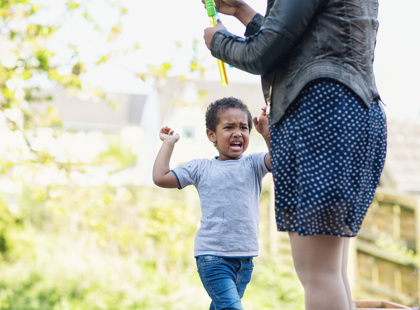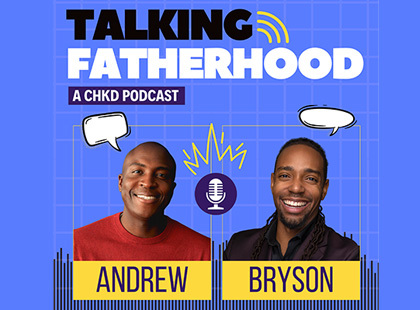
Every now and again, I am reminded just how complex children can be. What we may see on the surface with their behaviors is usually different than what may be going on underneath. Typically, as parents, we often don’t take the time to get to the root of the issue before we react to the behavior we’re seeing. Sometimes our response may momentarily stop the behavior but doesn’t really fix what may be going on with the child.
About a month ago, our 3-year-old daughter began attending preschool three days a week on Mondays, Wednesdays, and Fridays. Prior to this transition, she’d been with an in-home babysitter that she visited daily. With her new schedule, she would only be with the sitter on Tuesdays and Thursdays. She approached the start of this new routine with mixed emotions. She adores her sitter, whom she’s known since she was a few months old, but she was also excited about meeting new kids at the preschool.
After the first couple of weeks, she seemed to have settled into the routine with no issues or concerns. One Monday morning, she woke up excited under the belief that she would be heading to the babysitter’s that day. I had to break the unfortunate news to her that it was a preschool day, and she would have to wait until the next day. At this point, she became upset, started to cry, and stated repeatedly that she did not want to go to preschool. I was confused because I felt that she’d been adapting well to her new schedule. I was also anxious that this would become something that we would have to deal with every other morning. I asked her, “Why don’t you want to go to preschool? I thought you liked it.” She just kept repeating that she wanted to go to the sitter’s home. It was frustrating to not get a clear answer from her about what was going on. I recognize that as parents, we often ask these questions unaware of what they are feeling and not sure how to express it in moments of heightened emotion. For young children, it is our job to brainstorm what could be impacting them that would lead to some of their behaviors and responses.
So, that’s exactly what I did. I realized that up to that moment, she’d probably woken up each morning not really knowing where she would be going that day. We had just assumed that she would catch on to the routine of attending preschool every other day. Additionally, even if she had caught on to the routine, coming out of a weekend probably threw her for a loop since she’d be attending preschool consecutively with no sitter in between. This was a lightbulb moment for me, and I felt like I’d cracked the case! Luckily, I had not responded to her insensitively, but with the chaos of the morning, I very well could have in that moment. Rather, I was able to engage her in a conversation with my hypothesis to which she acknowledged seemed fairly accurate. She was able to take a few deep breaths, calm down, and ended up going to preschool with no further issues.
By taking the time to do the processing for her and come up with a plausible reason for her behavior, I was better able to help her problem solve. Later that day, I pulled out the dry-erase calendar and marked down the days that she would be attending preschool and when she’d be with her babysitter. This became a routine. At the end of the day she would cross that day off on the calendar and look ahead to see what was happening the next day.
Moments like this are always a reminder that it is important to pause before responding and to make efforts to try to get to the root of the behavior. Kids aren’t always going to be able to verbalize how they’re feeling. It’s up to us to put on our detective hats and assist them in figuring it out. Only then can we provide a response that is beneficial for all.






